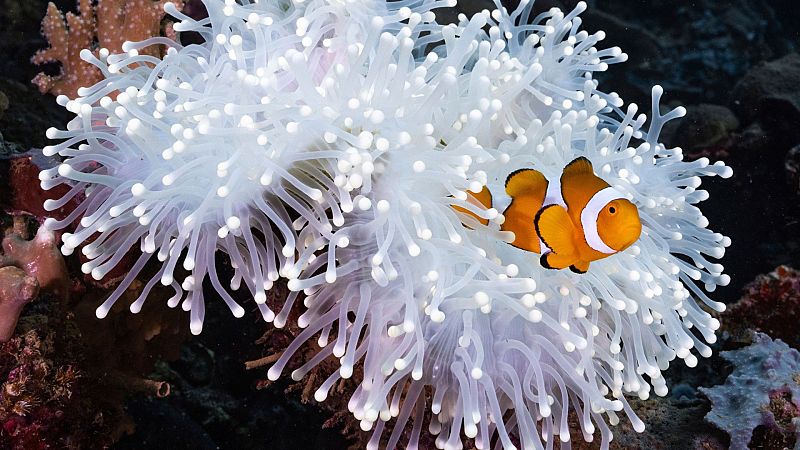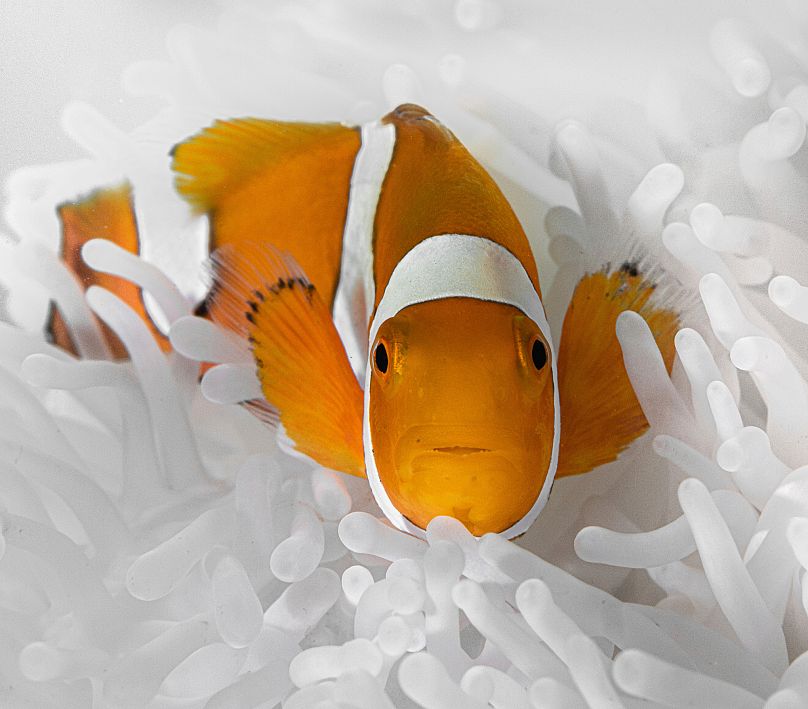
To survive warming oceans, clownfish cope by shrinking in size.
Scientists observed that some of the orange-striped fish shrank their bodies during a heat wave off the coast of Papa New Guinea. Fish that slimmed were more likely to survive.
Heat waves are becoming more common and intense underwater due to climate change. Warmer water temperatures can bleach sea anemones that clownfish call home, forcing them to adapt to stay alive.
What was happening to the clownfish?
Scientists monitored and measured 134 colorful clownfish in Kimbe Bay during an intense heat wave in 2023 that's still bleaching corals worldwide. They found that 101 clownfish decreased in length on one or more occasions from heat stress.
“We were really shocked at first when we saw that they were shrinking at all,” said study author Morgan Bennett-Smith with Boston University. The findings were published Wednesday in the journal Science Advances.

Though scientists don’t yet know how clownfish shrink, one idea is that they could be reabsorbing their own bone matter. It’s possible the smaller stature may help the clownfish save energy during a stressful scorch since smaller fish need less food.
Certain clownfish breeding pairs also synced their shrink to boost their survival odds. The females adjusted their size to stay bigger than their partners, keeping the female-dominated social hierarchy intact, researchers said.
Other animals shrink to beat the heat
Other animals also decrease in size to beat the heat. Marine iguanas get smaller during El Niño events that usher warm waters into the Galapagos. But this coping strategy hadn't yet been spotted in coral reef fish until now.
“This is another tool in the toolbox that fish are going to use to deal with a changing world,” said Simon Thorrold, an ocean ecologist at Woods Hole Oceanographic Institution who was not involved with the new study.
The tactic helps clownfish weather heat waves in the short-term, but it's not yet clear how the fish will fare if they have to keep it up in the years to come, Thorrold said.
Researchers found the shrinking was temporary. Clownfish possessed the ability to “catch up” and grow back when their environment got less stressful, showing how living things are staying flexible to keep up with a warming world, said study author Melissa Versteeg with Newcastle University.
“These natural systems really are under stress, but there's a capacity for incredible resilience,” Versteeg said.







